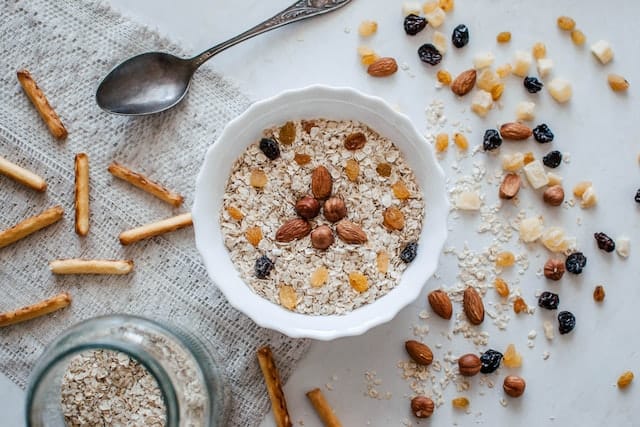What Are Oxalates?
Oxalic acid is nothing more than an organic compound. This compound is found in many plants we eat including vegetables, fruits, nuts, seeds, and more.
Where oxalates come into play is when oxalic acid binds to other minerals in those plants, forming oxalates. The interesting part is that while we can find oxalates in other sources such as plants, our body can produce its own oxalates.
While these oxalates are generally no problem for some, they can bind to other minerals when ingested and create compounds such as calcium oxalate and iron oxalate. Plenty of people will excrete these compounds in their stool, but some can have build-ups in certain areas such as the kidneys, resulting in an increased chance of kidney stones.
Don’t be too concerned though, even if you are more likely to develop kidney stones or other issues, they can be avoided by controlling oxalate intake.
Is Oatmeal High In Oxalates?
Oatmeal is a delicious breakfast food loved by many! It has many health benefits and is fairly easy to make, especially if it comes prepackaged and flavored.
But, is oatmeal high in oxalates? If you’re a lover of oatmeal, then rest assured as it’s relatively low in oxalates and safe to consume.
While oatmeal itself is low in oxalate, I would caution around the variety of manufacturers that produce oatmeal packets. Even though oatmeal is low oxalate, some producers may add extra ingredients and it’s beyond the scope of the article to account for every oatmeal brand that exists or will exist. So, exercise caution when buying different oatmeal brands beyond the plain version of oatmeal.
If you are following a low-oxalate diet, it is important to be aware of the oxalate content of the foods you eat. However, oatmeal is typically considered to be a safe and healthy choice for most people, even if you are following a low-oxalate diet.
It is also worth noting that the way you prepare and cook your oatmeal can affect its oxalate content. For example, boiling oats in water and then discarding the cooking water can help to reduce the oxalate content.




Comments are closed.